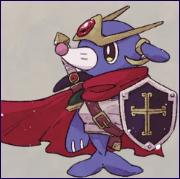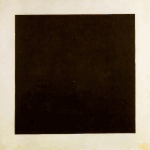|
Why not just make it happen in real time, then? Find a way to make sure the overseer has something he needs to do that he's giving up doing by watching the workflow. You'd need some way to enforce that the Overseer can only talk directly to middle management, though. Then you get some hectic real-time Telephone stuff going on.
|
|
|
|

|
| # ? May 30, 2024 16:48 |
|
The Leper Colon V posted:Why not just make it happen in real time, then? Find a way to make sure the overseer has something he needs to do that he's giving up doing by watching the workflow. Heheh, the game is completely silent except for playing cards to your superiors/subordinates asking for things (Commissar plays "Show me the workflow" card to the overseer). The CD soundtrack is a loud factory floor you can't hear each other over.
|
|
|
|
A real time game where players all take multiple turns at the same time might work well. Think like Escape: The Curse of the Temple. If everyone is all under a time limit and trying to get their own poo poo done, then it could be easier to risk doing an 'obvious' poor play because people would be distracted by their own actions and needs. The panic and time limit could then also be used for plausible deniability. The fact that players would need to look out for traitors while also completing their task would add an interesting element, I feel. I dunno if it'd really be a dexterity game, aside from the fact that all real-time games od have an element of dexterity to them.
|
|
|
|
I think having everyone be too absorbed in their own tasks could cause a real issue, though. It'd be like if Space Cadets had a traitor. How would you even notice? What would be fun about it, at all?
|
|
|
|
I really like the idea of a real time traitor game, particularly one that creates tension between "getting my own crap done efficiently" and "spending attention watching to see who's screwing up". But I have no idea how to implement it. Like, imagine you have a traitor in Space Alert. From a distance this seems like a super compelling idea - even once you reveal your actions, it's a fun puzzle to tell whether someone just screwed up or was malicious (you'd have to have multiple "rounds" of plan/resolve I think for this to work). In a normal game of Space Alert, if you just wanted your team to lose you have a multitude of fun options. However, if you actually were playing a traitor game, it'd be too powerful to double-confirm/nail down stuff. "So, to confirm, you're playing 'B' on turn 8, right?" - and then it's too clear who's lying. In a normal game you often don't waste attention memorizing that stuff, but it'd be too valuable not to if you could use it to suppress/catch a traitor.
|
|
|
|
Shintaro posted:If you're going for a casual/short/pick-up-and-play game, might I recommend keeping the tavern relatively small, forcing knights to interact more? Thanks for the feedback! The tavern will definitely be small enough, so that you have to balance between dodging attacks and not getting caught in the hands of the angry crowd. I've designed some scoring mechanisms so that game winning isn't dependent on a last-man standing scenario anymore. The idea would be that certain succesful acts increase your fame (e.g. landing a blow, succesfully blocking etc.) so that if you just turtle on the outskirts of the tavern, you'll lose even if you outlast other players. You're probably right in that hexes translate better than squares for this kind of game. I initially thought that the squares would simplify the gameplay in a positive way, but it seems they'd actually hamper it, especially in terms of attacking and blocking. One problem with the hexes though is making easily readable and understandable movement cards. To answer your other suggestion, I got to playtest the game before I add any forced randomness. Currently I'm afraid that since the programming of movement and attacking is simultaneous, succesful attacking, blocking and maneuvering will be too hard. This, in turn, will at its worst create the feeling that there is no skill in play at all. On the other hand, I like the idea of implementing the theme in more ways than just the hilarity that ensues from playing the wrong actions in the wrong time. Another possibility is to allow players to use separate action cards (that are not part of the three mandatory actions) to affect other players or the whole round itself. The amount of these cards per player and the phase in which these could be played are still up in the air though. Hopefully, I have the possibility of testing this out on Thursday.
|
|
|
|
I think it could work, if the game was designed around it. It would require a careful balance of needing to concentrate on your own tasks, but having enough wiggle room or downtime to pay attention to others. If each player's puzzle was somehow related to other players - for example, in order to begin a task, a player needs the person before them to complete their task. So when Player A completes his task, he passes something to Player B that allows Player B to start a new task. If Player B finished his task way faster than Player A, he'd have time to observe / encourage / berate other players. Then once Player A finishes his task, Player B can begin on his next one. Could create a group dynamic because if one player is underperforming, it's causing the entire team to suffer as the time delay works its way down the chain - Player C is waiting for Player B, and Player B is waiting for Player A. Could give some options to 'accidentally' screw over the group by performing poorly, but would run the risk that the more you try to screw over everyone (aka the traitor's goal) the more time people will have to observe you and potentially realize you're a traitor.
|
|
|
|
PlaneGuy posted:A game could have a set number of turns to deliver the product (the bomb, I suppose). The commissar or overseer can give up submitting work on a turn to peek at part of the workflow. So instead of getting a "fail", you get information on if there is a traitor or not, but it counts against your clock of the game (which could be a form of sabotage in of itself). Since the Commissioner chooses who adds to the bomb, this reminds me of another issue I've been having with Resistance lately, and one I'd like to see solved in future traitor games - That the traitor, when discovered, just gets to play less. If you make yourself out to be an obvious Spy in Resistance (say, by being incapable of keeping a straight face when people accuse you with decent reason of being red) then you're pretty much out of the game; You probably don't get to go on any more missions and no one is going to listen to your advice. At best, you become a body to be thrown under the bus for the other spies to say "oh yeah, they're DEFINITELY bad." In the bomb-building game example, if the same scenario of loving up building and then giggling like a particularly-ticklish spy, you don't get to build the bomb anymore because no other "spy" Commissioner would be dumb enough to put you on the job and risk having people figure out the obvious. I'm really not sure how to solve this sort of problem in the genre - it's like the worst of both euro and ameritrash variations of player elimination, keeping them in the game but not even giving them the satisfaction of making their own last-place point engine - but I feel like there has to be a few creative solutions to minimize it.
|
|
|
|
Countblanc posted:Since the Commissioner chooses who adds to the bomb, this reminds me of another issue I've been having with Resistance lately, and one I'd like to see solved in future traitor games - That the traitor, when discovered, just gets to play less. If you make yourself out to be an obvious Spy in Resistance (say, by being incapable of keeping a straight face when people accuse you with decent reason of being red) then you're pretty much out of the game; You probably don't get to go on any more missions and no one is going to listen to your advice. At best, you become a body to be thrown under the bus for the other spies to say "oh yeah, they're DEFINITELY bad." Yeah, I've been noticing this pretty bad myself lately. At first I really liked how there was no player elimination in The Resistance, but in practice I feel like you end up with even more players with no inputs in The Resistance than in Mafia, and at least you always have the option of going into the kitchen to bullshit with other eliminated players in Mafia. I'll take elimination over being forced to stay in the game with no hope of impacting the final result any day.
|
|
|
|
BSG does a really good job of tackling that issue. Once you're outed as a traitor (or even before, if the time is right), you get to dramatically throw off your human disguise and wreck havoc in a much more open and obvious way.
|
|
|
|
quote:At first I really liked how there was no player elimination in The Resistance, but in practice I feel like you end up with even more players with no inputs in The Resistance than in Mafia Get Resistance: Avalon, and play with Lancelots (who switch teams depending on random card flips, and one starts on each team). No matter how burnt/established you are, you can always claim/be-fingered-as a Lancelot once the flip comes. And, in a reasonable game, it should never be clear who Merlin/Guinevere are, so even if you're otherwise "sitting out"/"on every mission", you are still rewarded heavily for either figuring out who's who, or pretending you're a specific character you're not. We were so/so on Resistance after a while - but I can't think of anything to complain about with full package Avalon (after hundreds of games). It's very rare you get bad/deductive games, the player communication is both "required in order to win often" and "horribly dangerous", and the range of potential gambits and situations is breathtaking for such a small game. Also: playing as a Lancelot may initially seem random/subject to whims of card draws. In practice, a good Lancelot can often really dictate their own fate. They also have the wackiest options in terms of oddball plays.. for me Red Lancelot is the most fun role in a game full of fun roles. Edit: didn't mean to write an Avalon ad here... but they did find an excellent solution to pseudo-elimination in a hidden role game. jmzero fucked around with this message at 19:51 on Feb 3, 2014 |
|
|
|
The Leper Colon V posted:I think having everyone be too absorbed in their own tasks could cause a real issue, though. It'd be like if Space Cadets had a traitor. How would you even notice? What would be fun about it, at all? What if it was like Space Alert where you have a real-time planning phase where everyone's panicking and/or subtly sabotaging (or simply being good and efficient, if they're capable and willing of doing that) and then an untimed resolution phase where you get to see what everyone did and accuse people of being the traitor. Then some kind of negotiation/voting phase where you get to do something about potential traitors before the next real-time phase.
|
|
|
|
xopods posted:What if it was like Space Alert where you have a real-time planning phase where everyone's panicking and/or subtly sabotaging (or simply being good and efficient, if they're capable and willing of doing that) and then an untimed resolution phase where you get to see what everyone did and accuse people of being the traitor. Then some kind of negotiation/voting phase where you get to do something about potential traitors before the next real-time phase.
|
|
|
|
Basically Space Alert + a Witch Hunt of an after-action report
|
|
|
|
That sounds like an excellent game - To play with people you never play games with (and don't play multiple times). I know my group well enough to know when people aren't trying, time limit or not. I imagine BL's fabled group of Space Alert Professionals would have a similar problem; Once you reach a certain level of competence you can't really hold back without looking pretty incriminating.
|
|
|
|
quote:That sounds like an excellent game - To play with people you never play games with (and don't play multiple times). Yeah - being a traitor in Space Alert sounds like a ton of fun, until people are looking for a traitor in Space Alert. At very least, I think you'd need more ways to hamper communications or introduce uncertainty, so that the game didn't devolve into continuous "What are you going to do on turn 6?" consistency checks. (That said, communication restriction is really hard to do right/consistently. You watch different groups play Hanabi, and they might as well be playing completely different games.). It feels like kind of a variant of the normal co-op quarterbacking problem here; normally a real-time game is going to squeeze out problematic quarterbacking, but a potential traitor feels like it'll suck it back in. A real time traitor game might work better as a computer game (or a computer moderated board game even), where you have lots more mechanics available to manage communications, timing, rules enforcement, etc..
|
|
|
|
Hang on, here's an idea. What if some of the loyalist players have a motivation to do good, but not great? I'm thinking similar to Cylon Leaders with human loyalties in BSG. They want the team to win, but they also don't want it to be a cakewalk.
|
|
|
|
Countblanc posted:That sounds like an excellent game - To play with people you never play games with (and don't play multiple times). I know my group well enough to know when people aren't trying, time limit or not. I imagine BL's fabled group of Space Alert Professionals would have a similar problem; Once you reach a certain level of competence you can't really hold back without looking pretty incriminating. You joke, but my sendoff game for one of my crew members (when he moved to Seattle) involved us accidentally perfecting a Yellow campaign. Space Alert with traitors doesn't seem like there'd be much in the way of deduction, not unless the game is split into multiple resolution rounds with way more limited card resources. The Leper Colon V posted:Hang on, here's an idea. Budget cuts. If you overperform past your goal, your resources are reduced proportionally, as the crushing bureaucracy is pleased with the current level of productivity. (This actually hits really loving close to home now that I think about it) This leads us to an alternate, more subtle type of sabotage: Trying to screw over the team by being way too productive early on. Broken Loose fucked around with this message at 01:16 on Feb 5, 2014 |
|
|
|
Broken Loose posted:Budget cuts. Edit Gonna hammer out some rough rules for a game based on that idea. Gimme a bit, big post incoming soon. girl dick energy fucked around with this message at 01:22 on Feb 5, 2014 |
|
|
|
(Right now, I'm using dice as the main mechanic because it's a simple, reliable, familiar mechanic that can be easily tweaked and is mostly-transparent.) This comes out feeling a lot like a traitor-based filler game. Like Escape from the Curse of the Capitalist Pigdog. That might actually be a good thing. Tanks By Committee (lovely name, I know.) The setting: A Soviet tank factory. The objective: Produce as many tanks, as high quality as possible, as possible as cheaply as possible. The game begins with each player secretly receiving a loyalty card. Most of the players are loyal communists, but some of the cards declare that the player is actually a Capitalist Spy, who wants the factory to fail. (I'm thinking 1 traitor for a 5 player game.) Each player is in charge of making a specific tank part. Turret, Armor, Treads, etc. As the number of players increases, the 'required' parts get more and more byzantine (bolt-tightener, bolt-loosener, emergency-exit-door lock, portrait of Comrade Stalin, etc.), but the number of required parts is always exactly equal to the number of players, and each of the parts is roughly equally difficult to make. Five Official Soviet Iron Rations are also placed in the middle. (More on them in a second.) Each round, one player (rotating clockwise each round) is declared the First Equal, and dictates when and how to hand out Iron Rations that round. Each job has a set of 4(?) dice and a deck of cards, with a specific color. The dice have symbols on them, generic and the same between all sets of dice. (Gears, a Soviet Star, a steam pipe, etc.) Each round, a card is drawn from the player's job deck, and placed in front of them for the duration of that round. Each card shows a specific 'hand' that must be rolled on those four dice to make a part. Once everyone has their jobs and has drawn their part-cards, the quota number of tanks is declared (perhaps from a deck or die, to keep it somewhat random) as well as the time the players have to complete them. This also, however, includes some kind of limitation all players must obey, the new orders from above on how to best improve efficiency. Think E:CotT's curses. One hand must remain behind your back, each die must be rolled one at a time, you may not speak and roll dice at the same time, etc. At the same time, everyone begins making their rolls. This is the Build Phase, and the core of the game. The players roll the dice, trying to get that exact 'hand' depicted on the card. Each time they get an exact match, they're allowed to put a token of their color into the center, representing a completed part. Now, here's the rub. The entire set of four dice must all be rerolled together. There's no 'keeping' of a single die while you reroll, unless you take one of the Iron Rations, which allows you to keep a number of dice each roll equal to the number of rations. You can't take the ration without the First Equal's permission, however. (The First Equal cannot take more than one Iron Ration for himself, no matter how many players there are.) Once you take the Ration, you can't put it back, nor can you give it to anyone else, though, and there's another use for them that comes up in a bit. Once time runs out, the Assemble phase begins. Everyone together counts out their own contributions, and the number of rations they took. A number of tanks are completed exactly equal to the number of total 'sets' of completed parts (one of each color being played). Iron Rations may be used as wild cards that act as any part. The number of completed tanks is compared to the quota. If the number is exactly met, then the quota has been met, and nothing bad happens. However, a single Iron Ration is permanently lost going into the next round if the number of tanks is either under (penalty fees for failing to meet the quota) or over (budget cuts because you clearly do not need as many resources as you're getting). Then there's a traitor-accusation phase. I need help with this part, because it's crucial to get it just right. Player elimination based on a majority vote is a sloppy answer, but the only one I can think of that actually works. The next round begins, Iron Rations are replaced (minus any lost for missing the quota), new Part cards are drawn, a new First Equal is chosen, and things repeat. Three rounds pass, total. At the end of the third round, if at most one Iron Ration has been lost, the Loyalists win. Otherwise, the Capitalist Pig(s) wins. ---- A lot of the rules still feel really sloppy, especially deciding how to remove players and who wins when.
|
|
|
|
Why would any non-traitor player ever produce more than the number of parts required by the quota?
|
|
|
|
Tunga posted:Why would any non-traitor player ever produce more than the number of parts required by the quota?
|
|
|
|
I was trying to think of a way that you could make shoddy parts, e.g. use fewer dice or use more common symbols instead. Then you could churn out more pieces if you're behind, but they're not worth as much. Of course, if you're making lots of shoddy parts, you look pretty suspicious, since you're lowering the team score. If it wasn't evident who was making shoddy parts and who wasn't, just that the tank came out shoddy, then you could start casting blame on, say, the guy who just has the luck of the
|
|
|
|
Perhaps the person who produces the most becomes the next First Equal, and First Equal has some personal benefit (maybe they can't be "accused", whatever that mechanic ends up being).
|
|
|
|
The Leper Colon V posted:...I don't know. You could make it so you have a bit of wiggle room for above quota. If you hit quota, nothing happens. If you get 1-2 over quota, you get an extra ration as a reward. If you get 3 or above, then you lose a ration due to not needing them. Alternatively, you could reward extra fully completed tanks over quota, but punish partially completed ones. So for every 2 extra tanks you make over quota you'll get an extra ration, but if ever there's an uncompleted tank above quota, you lose a ration instead for wasting resources. Could give players a reward for making extra tanks, but then they would run the risk of 4/5 of the players completing their parts, leaving an unfinished tank and thus costing a ration. Would provide for some funny bits of everyone yelling at each other for loving things up. I think there might be some merit to maybe not having player/specific colors on the tokens? Then it wouldn't be super obvious that Green player is usually the one who's behind on parts. Instead it'd be up to players to try to figure out "okay, we're getting low on parts kinda often, who is usually in the building group when that happens?" e: Another idea that may not be appropriate for this game but may spark some ideas: players could maybe submit their completed parts in secret, so each player wouldn't know how many parts each other player completed. Do I go for one tank over quota for a bonus? But if no one else does, then I'd wind up costing us. Player B has a really hard hand to create, should I try to make extra parts to make up for his probably failure? But what if he gets lucky and pulls it off? CodfishCartographer fucked around with this message at 03:10 on Feb 5, 2014 |
|
|
|
You know, it's a matter of theme. Having a sort of blackjack "overflow = failure" mechanic could be neat for mindgames and such. Say it's processing too much explosives, overcharging bullets so they explode inside the barrel of tank or whatever.
|
|
|
|
How many of the same image are on these dice? If they're, say, normal d6, then it seems to me like it would be really, really hard to get a good match. Suppose my First Equal is being really stingy with the rations. Let's see how long it takes me to make a Rifled Barrel, a set with a 2, a 3, and two 6's. I went to rolz.org, set the command 4d6; 4d6; 4d6; 4d6. That way I could roll 4 times in one go. Total amount of rolls it took me? 202! If each roll takes 1 second, then that would take me more than 3 minutes. To make one. Of course, you can fix that more than easily by getting a ration. But then everyone needs a ration, as soon as possible, and there are only 5/as many as there are players. I assume, then, that there are multiples of the same image. Otherwise it will take just short of forever for these poor Russians to make these tanks. I was almost thinking three symbols, one with 3, one with 2, and one with 1, but that might be too few symbols. EDIT: Actually, I ran it again where you only need 3 symbols to make a piece, and I got much better results. (This time my formula was 5,5,6.) After an early start where I made 2 in the first 10, I hit a 70-roll slump before getting them fairly evenly from then on. At the end, I had a total of 10 parts made. ActingPower fucked around with this message at 03:57 on Feb 5, 2014 |
|
|
|
ActingPower posted:I assume, then, that there are multiples of the same image. Otherwise it will take just short of forever for these poor Russians to make these tanks. I was almost thinking three symbols, one with 3, one with 2, and one with 1, but that might be too few symbols.
|
|
|
|
The Leper Colon V posted:I was actually thinking 2/2/1/1, myself. I'd have to play with the rolls to see how that turns out. Say, a 1 and a 2 are the same, and a 5 and a 6 are the same. I... still think it'll be pretty hard, especially with the 1's. If you have a four-piece with all 1's, then my calculations are still sound. (And my three-piece ones, too.)
|
|
|
|
And that's why a good overseer will give that person an iron ration. And a bad overseer won't.
|
|
|
|
The Leper Colon V posted:And that's why a good overseer will give that person an iron ration. And a bad overseer won't. ActingPower posted:Of course, you can fix that more than easily by getting a ration. But then everyone needs a ration, as soon as possible, and there are only 5/as many as there are players. EDIT: Sorry, that's not supposed to be sarcastic. I need to see if doubling two of the odds changes the likelihood of completing that part. If it does, then you're right, those people don't need a ration. But if it doesn't, then we still have a problem.
|
|
|
|
You see "problem", I see "feature". As long as every part isn't that difficult, it creates something that actually makes being a traitor viable: differences in the difficulty of making parts.
|
|
|
|
Okay, here are your odds: 4 2 types: (4 5's or 6's): After 200 rolls, I made 3. This... isn't looking good for you. Here, I'll do it again, only with 1's and 2's this time. After 200 rolls, I made 5. Nope, your workers are screwed. Even if they only need to make 5 of the easiest piece to make quota, it'll take a miracle. EDIT: I want to try my odds (3/2/1), but it may take a while. So... space saved for that test (and any others you'd like me to run). Okay, apparently I suck at this game. 200 rolls with my improved die and I still only got 7 parts made, even with the easiest part. So I did it again. This time I got 13. (Over double. Apparently that first one was really bad.) That... might be about what you want. Up to you, really. EDIT: I tried yours again, and holy cow was it the worst one yet! It took me almost 100 rolls before I even got one, and I only got 3 overall. I decided to total up all of the other side, and there were only 4 of those. And remember, I'm using a magical set of dice that rolls itself, tallies them for me, collects them for me, and re-rolls them in a heartbeat. I don't know what to tell you. I love the game, I love the idea, but the odds are way, way too low. ActingPower fucked around with this message at 04:56 on Feb 5, 2014 |
|
|
|
I like the idea but the Iron Rations were a little weird to get my head around. I want to suggest the idea of the First Equal handing everyone a different role which they must manage in addition to their construction die-rolling. You! You are responsible for quality control - ensure no one is "wasting" dice. You! You are output manager - ensure we meet our quota, no more no less! You! You must watch that no die rolls are being faked! And so on. The roles are just fluff but it provides a starting point for discussion/witch-hunting later. We were over quota! Jim, you should have noticed! Jane! Tom barely completed a single part! Was he sandbagging it? You were supposed to be watching! And so on. Also has that dystopia feeling of being held responsible for things you can't possibly actually control.
|
|
|
|
I feel like both your odds and the obviousness will be increased if everybody can make every part. That way you have 4x the odds (roughly) of being able to make a part. And just because part A is over, doesn't mean player A is the bad guy. Also if there were some hidden information, like each player gets a card that tells them how overflows on a certain part will be treated. Part A actually can be reused in trains, so overflows are ok. Part C took steel away from Stalin's vacation house, and overflows will be severely punished. Then those cards are shuffled and revealed. Although with those changes I feel like maybe it's really hard to deduce anything.
|
|
|
|
OK, I think I've got a thought with some potential: You have a traitor game that also has a publicly known enemy who the players attempt to beat at a bluffing game. So, for example, players may have cards they use to attempt to complete a task. They can claim their cards meet the task requirements (probably with some "Liar's Dice" back and forth), but only have to reveal them if the public bad guy challenges. Why is this important? Because it gives the traitor valid reasons to lie - ie. I thought I could fool the bad guy even though my cards were weak, and nobody else was stepping up - and places interesting incentives on communication between team members about, say, the strength of their hands. So in a Communist building game, the known bad guy could be the Americans. He says he can get a monkey to the moon. Can any of us beat that (eg. send a human to the moon)? Vlad says he has a pretty strong hand. He's lying, but he's not the traitor, he just wants to bluff out the American. The team chats, and eventually the Russians pick one of the team players to do the conflict (maybe the traitor). That player might win or lose against the American, while the other players get to discard/draw cards to improve their hands (meaning there's incentive to let many different people participate in conflicts, because their hands will be getting better and better). You assign VP based on the challenges (perhaps with some variance based on the nature of the challenge), and the traitor wins with the American. Maybe the American picks the challenge type for each round, with some variation in the card resources that will be important for that challenge. You'd naturally need 4 or more players. There's a bit more explicit randomness than a normal hidden role game... but I think there's some good potential there. I think there'd be enough information to have some good suspicion about the traitor, but also enough cover that you could get away with some horrible moves (eg. I thought I could get rid of all my weak cards and still maybe win.)
|
|
|
|
So I got this little solitaire wargame idea the other day. The system would depict famous military raids and similar sorts of shenagigans. Each scenario would start with a Planning Phase, where the player takes a hard look at the map and his faulty, incomplete intel about enemy forces and plans accordingly, choosing drop zones, customizing his precious few squads (in a simple manner, like 1-2 inventory slots) and, you know, making an actual battle plan. The thing is, these sort of operations tend to be fast and furious and there's really not enough time to do what you need to do and think about it. Therefore, the ridiculous idea of a programmable action wargame was born. So you'd pre-program, say, six moves ahead for each squad by laying out a row of cards. These would be slightly more open-ended than those found in most programmable action games (e.g. there'd be a "Infiltration Move" and "Assault Move" cards granting the ability to move, but the target area could be chosen on the fly) as you're commanding people rather than mindless automatons. Still, it'd require pre-coordinating complex maneuvers like bounding overwatch, which invariably go to poo poo due to miscalculating AI enemy reaction, your troops getting suppressed or simply landing two kilometers off the drop zone. Each turn (of the actual operation) you'd repeat programming the next few actions (representing the OODA cycle, or in other words your squad leaders figuring out what the gently caress just happened in order to change their orders). One would also have a scarce pool of Initiative Points each turn, allowing some minor patching up of the plan during the turn resolution and perhaps some nice re-roll for when your maneuvers go off without a hitch. Now, assuming this system works at all, it is obviously geared towards operations where you hold the initiative: all the enemy does is try to disrupt your ability to do stuff, mostly by loving up your men. Yet, if the system could be forced to work in a limited scope with more defensive operations, it could allow to do some fun stuff, like have two linked scenarios of taking the Pegasus Bridge and holding it until relief arrives. Or the Battle of Mogadishu. Sadly, I'm not sure how it could be done in a satisfactory way - there's really not that much interesting things to do and/or have disrupted when you pretty much take the the mobility out of the equation.
|
|
|
|
Two quotes come to mind: "No plan survives contact with the enemy," and "Everyone's got a plan until they get punched in the head." (The latter being from Mike Tyson) I like the idea and would give it a shot. I am also biased in favor of solitaire games. e: Actually No Plan Survives Contact With The Enemy would make a pretty good name.
|
|
|
|
Some further Battleplan system musings: - It'd allow for only a handful of units under player control, otherwise risking extreme fiddliness and requiring millions of cards. - Units should engage enemies automatically: usually it's a commander's headache to make his subordinates hold or cease fire rather than them not engaging a visible opponent. - Close combat (happening when friendly and enemy units meet in a single area) would simply take precedence over given orders. - Actually, since there'll be so few units to order around anyway (5 for the scenario I'm aiming to take my first shot at) I think I'll risk giving each a counter indicating their fire target, so that shifting fire while already engaged is a discrete decision. This could both help breathe some life into possible defensive episodes and make flanking by the enemy appropriately awkward. - I think of doing Space Alert-style double order cards, mostly to ensure there's enough of each order in the deck if you choose to spam it, but I guess a "Plan B" Initiative Point power of flipping the card to the second order depicted before resolving it could be cool. I envision the orders themselves as: Infiltration - slow, cautious move, doubling as hold fire order. Assault - the default move order, probably doubling as shift fire. Covering Fire - basically forfeiting a round to pump more lead in a given direction. Perhaps doubling as shift fire, but probably not, to throw a wrench into spamming this order at a designated fire element. Special Action - which really could use a better name. A catch-all order pulling double duty: 1. It'll work as a contextual action, doing poo poo depicted on icons in area the unit is in, or on other counters in the same area. Planting explosives, interrogating captives for intel, embarking on a chopper, stuff like that. 2. Using stuff the unit is equipped with. The two functions are merged into one order to conserve deck space and because they don't really need to be separate. May These would pretty much form core of the system. Other than that I've got Reconnoiter - to calmly assess potential contacts if you chose to sneak into position rather than doing a balls-out recon by fire assault. Could lead to some fun scenario-specific fun, like having to pinpoint lone snipers or insurgents blending before attacking or maybe making it easier to attack concealed enemies. Probably doubling as hold fire. This leaves me with space to comfortably add an order or perhaps two. Assuming possible scenarios could span the timeframe from WWI to modern times, is there anything useful and/or important that wouldn't comfortably fit the Special Action glove? I'll probably try to make a discrete shift fire order, but that'll probably be served well enough by just Assaulting without actually moving.
|
|
|
|

|
| # ? May 30, 2024 16:48 |
|
It seems like you'll need someway of specifying where you move, unless all the units are just on rails.
|
|
|




















